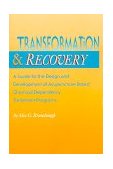Resources for Acupuncture in Chemical Dependency Treatment and Recovery

Is acupuncture appropriate for people with co-occurring psychiatric problems?
The 5-point ear protocol established
by the National
Acupuncture Detoxification Association (NADA) has been used successfully
across all populations with alcohol and other drug problems, and there
are no "special populations" for which it is contraindicated.
There is also no need for programs treating multiple populations at multiple
stages to segregate clients for acupuncture treatment. One acupuncture
clinic opportunity can treat all program clients at once.
Outcome studies have shown
that acupuncture helps persons with psychiatric disorders not only in
recovering from alcohol and illicit drugs, but also in stabilizing their
medications. One study showed significant reduction over time in the number
of psychiatric emergencies and hospitalizations for schizophrenics receiving
the 5-point NADA protocol on a daily basis.
For some individuals, the psychological
and emotional effects of acupuncture are more profound than for others.
Some report significant mood changes. While these changes are almost universally
reported as positive, there are cases where people with severe psychiatric
disorders may find these changes initially disconcerting. The treatment
may also give rise to unpleasant memories for persons suffering from post-traumatic
disorders. As is the case with all substance abuse interventions, it is
very important that the program have qualified clinical staff available
during and after acupuncture for counseling and support for issues that
might arise during treatment.
Programs able to provide adjunctive full-body acupuncture and other forms of Chinese medicine such as herbs have found that these additional therapies can be very helpful in the treatment of primary psychiatric disorders. As with all disorders, acupuncture and Chinese medicine should be seen as complementary, however, and never presented as "alternatives" to other medical care.
previous
- Read FAQs in Sequence - next
Index of Articles - Links - Home
Scroll Down for More "Frequently Asked Questions"
How many clients can be treated at once?
How often do clients need to be treated?
How long to clients have to keep having treatments?
Does it matter what time of day the acupuncture is provided?
What
national organizations support acupuncture in treating addiction? What
resources are available to support us if we decide to do it?
Does
the acupuncture program have to include herbs or nutritional supplements?
What
is the history of how acupuncture began to be used in chemical dependency
treatment?
What
does the acupuncture clinic look like exactly?
How
much space and extra equipment will we need to do it?
How
do we clean or dispose of the needles after they are used?
How
does acupuncture fit with drug testing?
How
do we find and train people to do the needling?
Could
we just try it experimentally to make sure it's a good fit for us?
What
technical assistance will be required to start and maintain an acupuncture
component?
Is
it compatible with harm reduction?
Is
it compatible with 12-Step or abstinence-based treatment approaches?
Is
it appropriate for mandated or court-referred clients?
Is
it appropriate for adolescents?
Is
it appropriate for pregnant women?
Is
it appropriate for people with co-morbid psychiatric problems?
Is
it appropriate for people with HIV/AIDS?
Is
it appropriate in methadone programs?
Is
it appropriate in residential programs?
What
training is required for current program and administrative staff?
What are the steps we should take to add an acupuncture component?
